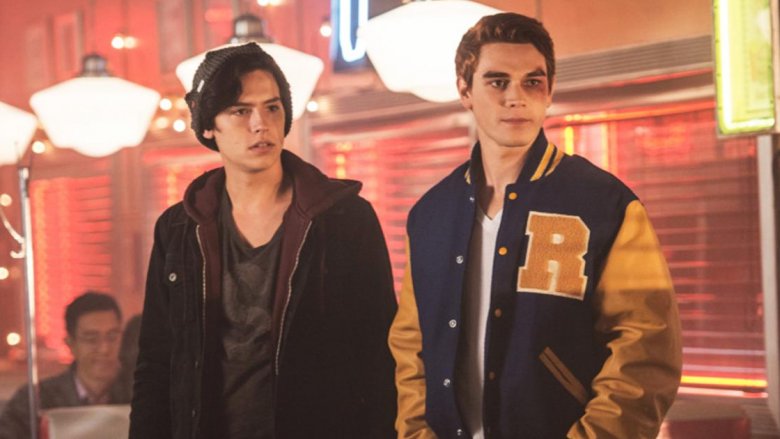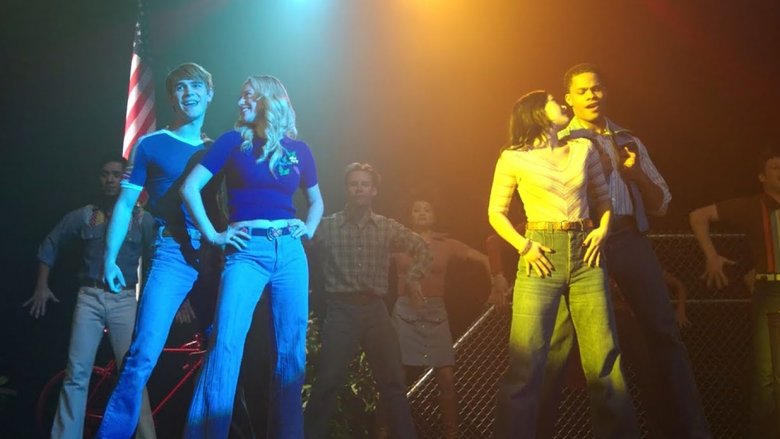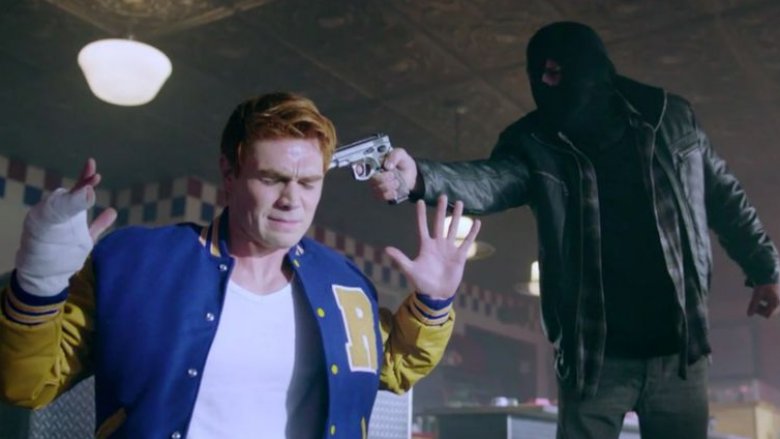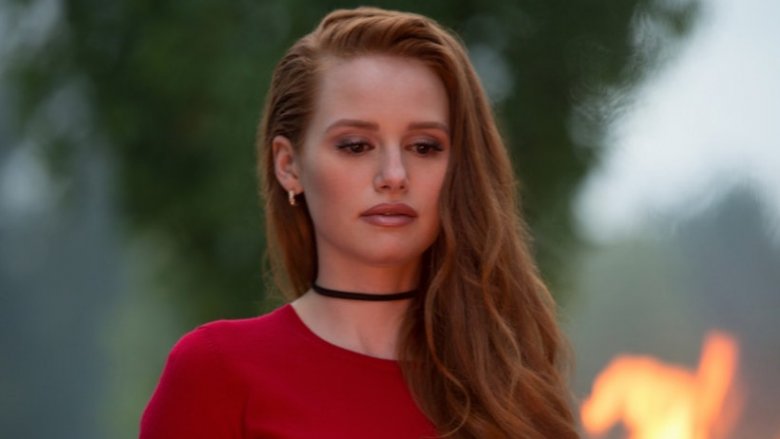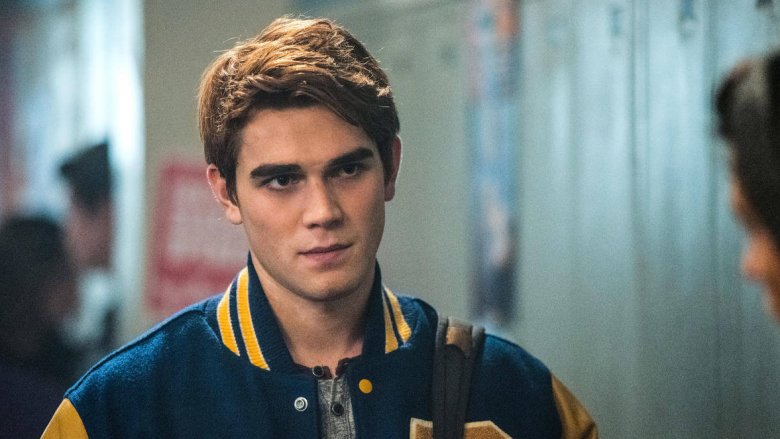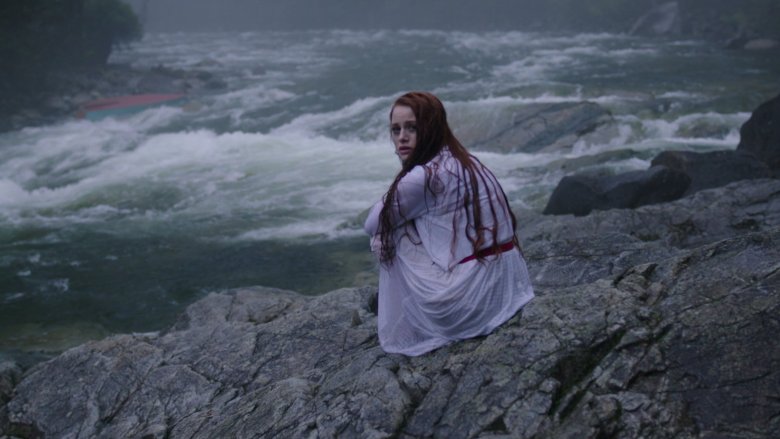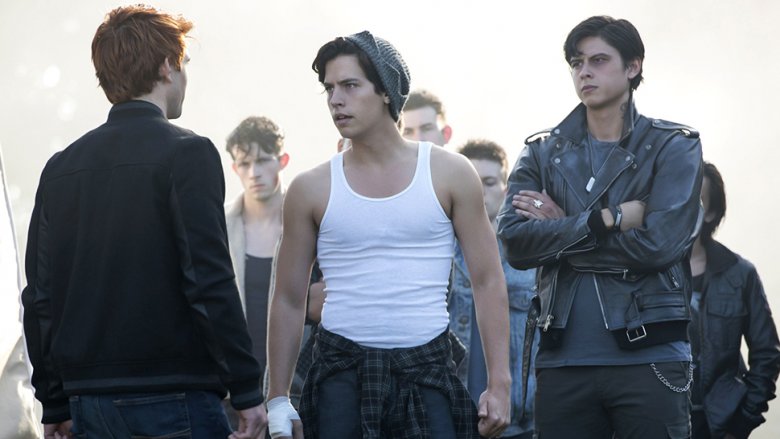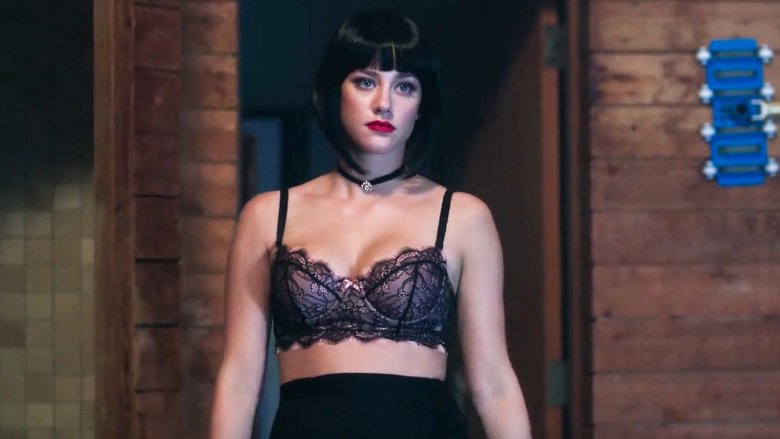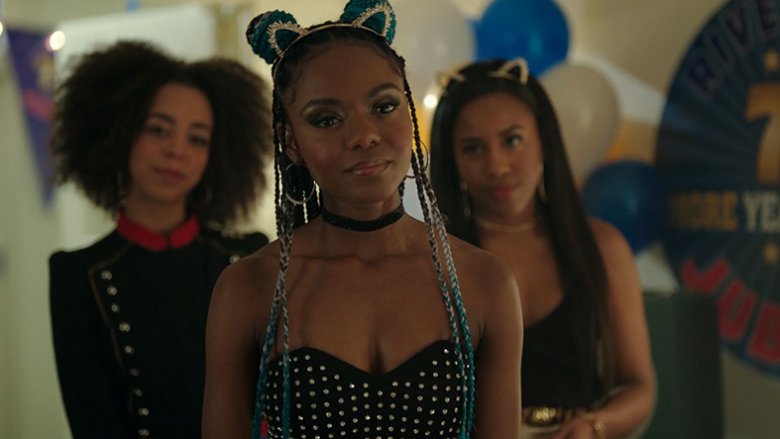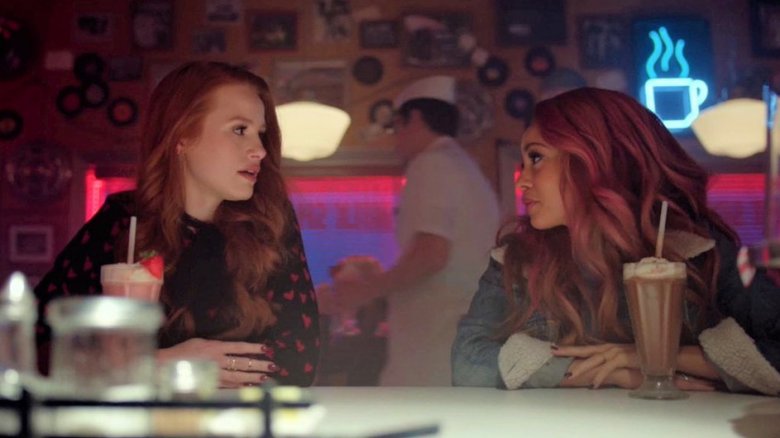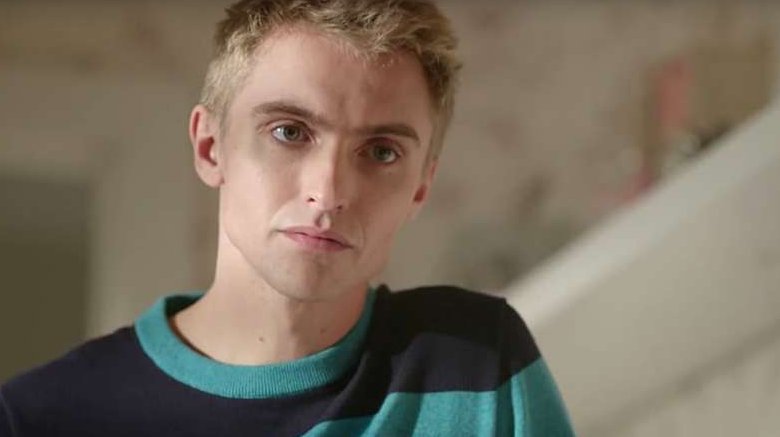The 5 Best And 5 Worst Things About Riverdale
When many people think of Archie Comics, they generally think of those brightly-colored digests they see in supermarket checkout lines, full of supposedly sweet storylines, wholesome characters, and lighthearted fun. When Riverdale, the CW series based on the Archie world, was first announced, it may have seemed strange to many that those same sweet old comic books could produce an often dark, sexy, and even scary teen drama. Nevertheless, Riverdale worked. The Archie archetypes translated well to the soapy world of the series, and Riverdale is now in its third season with even more secrets, musical numbers, and teen angst.
Riverdale is an undeniable hit, and the fans who love it really love it. With that in mind, it's hard to argue that there's a lot about the show that really works when it's firing on all cylinders. As with anything, though, there are also plenty of things in Riverdale that don't quite land. To appreciate them both, it's time to talk about the five best and five worst things about the show.
Best: Genre flexibility
One of the reasons Archie Comics have endured for so long is their steadfast reliance on the archetypes of its characters. It's easy to write this off as oversimplification, but the real trick is that if you take these broad characters with clear-cut traits—Archie the All-American Boy, Betty the Girl Next Door, Veronica the Rich Girl with a Heart of Gold, and so on—and apply them in the right way, you can essentially tell a story in any genre you want.
The TV series has embraced this clearly and from the very beginning, and the result is a show nimble enough to pivot instantly between horror, comedy, musical, and crime drama, often within the space of a single episode. Riverdale takes place in a town that could be anywhere and stars characters we all recognize, even if we've never heard their names before. That's not a sign of generic blandness. With the right storytellers, it's a strength.
Worst: Holding on to stories a little too long
The flexibility with which Riverdale can dip into many different genres and themes means it can also successfully juggle many different plots at once, trading them off week by week so one can take the lead while others can simmer on back burners until it's their time to shine. When this is done right, you get an extremely satisfying story with a long arc and just the right amount of tension, like the mystery of who killed Jason Blossom and its season-long resolution back in season one. If it's not done so well, you get a story that just jabs at the viewer like a pesky thorn, never quite going away and then dominating the show every time it moves to the forefront.
This happened in a very noticeable way with season two's Black Hood story, in which a vigilante killer stalked the streets of Riverdale. The story was never particularly potent, but it had its merits particularly when it came to character development for Betty (Lili Rinehart). That aside, it seemed to wrap up midway through the season, only to be clumsily rolled out again for an even bigger reveal later on. Sometimes Riverdale should let these things go sooner.
Best: The scene-stealing power of Cheryl Blossom
Riverdale ostensibly has four main characters, or at least it did when it started: Archie (KJ Apa), Betty (Lili Reinhart), Jughead (Cole Sprouse), and Veronica (Camila Mendes). They're the two guys and two girls who ultimately form the two couples at the heart of the show, while everyone else around them serves a supporting purpose. Among those supporting characters, you could remove just about any one of them and still have a pretty entertaining show with a great ensemble, but one has become essential: the majestic and deliciously venomous Cheryl Blossom (Madelaine Petsch).
Cheryl enters the series as the spoiled rich girl who gets to be the center of attention because her brother died, and ultimately evolves into so much more. She is the best example by far of the show taking an archetype and tweaking it into a well-defined, three-dimensional character, and Petsch's gloriously indulgent performance means Cheryl also gets to steal pretty much every scene she's in. This is a character who can introduce herself without a hint of irony as "Riverdale's resident It Girl" in one scene and then melt your heart with vulnerability in the next. She's just that good.
Worst: Archie's just not that interesting
One of the very first things we learn about Riverdale's version of Archie Andrews—football star and hard-working Nice Guy of Riverdale High School—is that he's been having an affair with one of his teachers. It's a sexy, unexpected element that adds a little hint of danger to a character we think we know, and it sets Archie off on a promising path to being much more than the clean-cut boy next door. In the two-plus years since then, Archie's gone to a much darker place than his Hot for Teacher roots, basically joining the mob at one point just to get closer to Veronica's father.
Somehow, though, he remains the least interesting main character on a show in which he's supposed to be the lead. It's no fault of KJ Apa's, to be sure. He plays Archie with a lightness and a charm that other actors would completely miss while trying to capture the angst, and he does the best he can with what he's given. It's just that what he's given is never quite as interesting as what's happening all around him.
Best: Leaning into horror
When the first images and footage of Riverdale arrived more than two years ago, many viewers were quick to compare its visual tone to Twin Peaks, David Lynch and Mark Frost's legendary soap opera satire about a beautiful town and its dark underbelly. Indeed, Riverdale's first major storyline, the murder of Jason Blossom and the secrets it unearthed about the town, did seem very Twin Peaks-esque, and the show spent its entire first season leaning into the seedy secrets of a seemingly idyllic teen paradise. At times things got down right horrific, something the show really kicked into overdrive with various episodes in the second season, including the musical episode in which the show's main cast did their own version of Carrie.
For teenagers, everything feels like the end of the world, and even the slightest harm can seem like life or death. Numerous TV shows, from Buffy the Vampire Slayer to Freaks and Geeks, have embraced that metaphor, and Riverdale is no different. When the show really leans into the most potent variation on this—homages to horror movies—it only gets more powerful, and more fun.
Worst: The evolution of Jughead Jones
When he was first introduced, Jughead Jones (Cole Sprouse) was the kind of Greek Chorus of Riverdale, the town's chronicler and commentator looking out over the whole Jason Blossom saga with an eye for storytelling and witty honesty. It was a role that suited the character, sitting in Pop's with his laptop and a plate of fries, and Sprouse played it well. Then, as the Jason Blossom story wound down, Jughead needed something else to do, and so the show pivoted his character to a guy who got mixed up in his father's biker gang and became some kind of strange crusader for a different kind of justice within Riverdale's corrupt power structures.
Something about Jughead and the Southside Serpents has never quite worked, not because the justice-seeking part of his character rings false (quite the opposite), but because of how swiftly and almost offhandedly he adopted it as a clear part of his persona. Plus, the integration of the Serpents as such an inescapable part of the fabric of the show after barely a mention of them in much of the first season still feels a bit jarring even after everything season two had to offer.
Best: The show's tongue remains firmly in cheek
Riverdale is a show packed with high-stakes stories. A murder needs to be solved. A vigilante is roaming the streets. Veronica's parents have ties to the mob. Cheryl's mother is scheming to either ship her off to boarding school or have her killed. It's all in service to the show's metaphor of high school as a world in which everything is either ultimate victory or the end of the world, and it works.
It works both because of the show's sincere desire to tell these stories in all their juicy, soapy glory and because of its commitment to remaining tongue-in-cheek about just how soapy it can get. That means that in addition to deeply emotional and even terrifying moments, we get "dark Betty" in a black wig, Cheryl bringing the cheerleading squad to a funeral in attire that could best be described as "Spirit Mourning," and fake names for drugs like Jingle Jangle. Yes, Riverdale is a drama with a surprisingly dark bite, but it's never afraid to have fun with itself, and that makes it more enjoyable all around.
Worst: Wasting the Pussycats
The main Riverdale cast aside, there's another group of key supporting players many fans were happy to see appear on the series from the beginning: Josie and the Pussycats, the teen pop group that was once the subject of their own animated series and even a cult classic 2001 film. In this version, the group is played by three actresses of color (Ashleigh Murray, Hayley Law, and Asha Bromfield), and their sound is very R&B-influenced. When they do get to perform, they sound great, and they're a fantastic addition to the show's dynamic.
The trouble is, while Josie often has a bigger role to play as a supporting cast member, the Pussycats as a unit don't get used as much as anyone who enjoys their contributions would perhaps like. Even in some of the show's more music-heavy moments, they're pushed aside in favor of the main cast, and while that makes a certain degree of sense, when you have your own band right at the heart of a show, you should use them. The internal strife between the group's members only adds to this problem. It's a nice bit of drama, but at the end of the day, you just want Josie and the Pussycats to stick around as much as possible.
Best: Growing diversity
From the beginning, with various actors of color in major roles and at least one gay character in Kevin Keller (Casey Cott), Riverdale was a show that seemed committed to inclusion, but despite those appearances going in, the early episodes weren't enough for some fans who wanted the show to really reach as much of its intended teen audience as possible through diversity. Riverdale is, after all, supposed to be a typical American town that could be anywhere, so it makes sense that all kinds of American teens should be shown.
Happily, the show has worked to make its diversity more than just optical, as Season 2 introduced both a new potential relationship for Kevin and Cheryl's budding romance with Toni Topaz (Vanessa Morgan) has the potential to be one of the most prominent same-sex relationships currently on television. There's certainly still plenty of room to grow on this front, but the important thing is Riverdale's commitment to more progress.
Worst: The long saga of Chic
Much of Riverdale's second season was devoted to exposing the darkness at the heart of the Cooper family, just as much of the first season was about doing the same thing to the Blossom family and the town as a whole. A huge part of that was the revelation that Betty's mother Alice (Mädchen Amick) had given up a son for adoption as a teenager. Betty and Alice find the young man, who calls himself Chic (Hart Denton), and take him into their home.
Thus begins a long, extremely convoluted, and often frustrating saga in which Chic grows close to Betty, then Betty grows suspicious, then they get close again, then they get combative, then they're bonded by violence, then they drift apart again, and on and on until it's all finally revealed to be a trick anyway. The trouble's not the fake-out of who Chic is and what he's up to, as that ultimately feeds into Betty's own struggles with darkness. The trouble is that he was never that interesting to begin with, and much of the time he just seemed to be in the way of Betty's arc rather than helping it along. No wonder Betty was glad to see him go.
